Top 10 Historical Events on January 21

January 21 is a date that has witnessed many significant events in history, ranging from political upheavals, cultural milestones, scientific breakthroughs, and tragic disasters. In this essay, we will explore the top 10 historical events that occurred on this day, and how they shaped the world we live in today.
No.1: Execution of Louis XVI (1793)

One of the most dramatic and symbolic events of the French Revolution was the execution of King Louis XVI by guillotine in Paris, following his conviction for "high treason" by the newly created French Parliament (Convention nationale). The death of the monarch marked the end of the ancien régime and the beginning of the Republic, as well as the onset of the Reign of Terror, a period of violence and radicalism that claimed the lives of thousands of people.
No.2: Carter Pardons Draft Dodgers (1977)
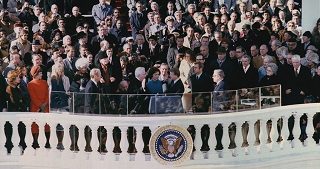
In one of his first acts as president, Jimmy Carter issued a blanket pardon for all draft evaders who had fled the country or failed to register for military service during the Vietnam War. The controversial decision was intended to heal the wounds of the nation and restore the trust of the public in the government, but it also sparked criticism from veterans and conservatives who saw it as a betrayal of the soldiers who fought and died in the war.
No.3: Concorde Takes Off (1976)
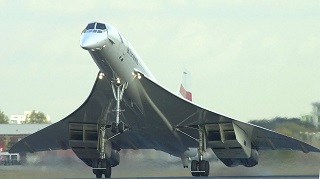
The Concorde, a supersonic passenger aircraft that could fly faster than the speed of sound, made its first commercial flights on January 21, 1976, from London to Bahrain and from Paris to Rio de Janeiro. The Concorde was a joint venture between Britain and France, and represented a technological marvel and a symbol of prestige and luxury. However, it also faced many challenges, such as high costs, environmental concerns, safety issues, and competition from cheaper and more efficient planes. The Concorde was retired in 2003, after 27 years of service.
No.4: Toyota Passes GM as Planet's Biggest Car Maker (2009)

In a sign of the changing dynamics of the global economy, Toyota officially surpassed General Motors as the world's largest car maker in 2009, based on the number of vehicles sold. Toyota had been steadily gaining ground on GM for decades, thanks to its reputation for quality, reliability, and innovation. GM, on the other hand, had been struggling with declining sales, financial losses, and bankruptcy. The shift in the automotive industry reflected the rise of Japan and other Asian countries as major players in the global market, and the decline of the US and other Western countries as dominant forces.
No.5: A Doll's House Premieres (1879)

Henrik Ibsen's play A Doll's House, which premiered in Copenhagen on January 21, 1879, is widely regarded as one of the most influential and groundbreaking works of modern drama. The play depicts the story of Nora Helmer, a woman who rebels against the oppressive and patriarchal society of her time, and leaves her husband and children to pursue her own identity and freedom. The play challenged the conventional norms and expectations of marriage, gender roles, and morality, and sparked a heated debate among critics and audiences, who either praised or condemned its radical message.
No.6: Houdini Escapes (1908)
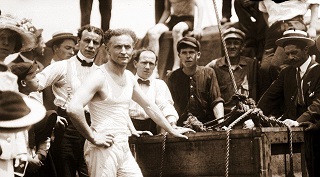
Harry Houdini, the legendary magician and escape artist, performed one of his most daring and famous feats on January 21, 1908, when he escaped from a locked, water-filled milk can in front of a large crowd in St. Louis, Missouri. The stunt involved Houdini being handcuffed and sealed inside a metal can filled with water, and having only a few minutes to free himself before suffocating or drowning. Houdini amazed and thrilled the spectators with his skill and courage, and established himself as one of the greatest entertainers of his era.
No.7: Angel Island Opens (1910)
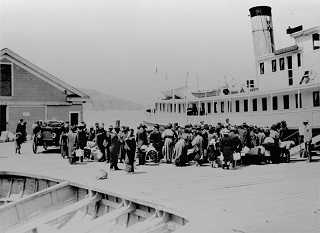
Angel Island, located in San Francisco Bay, opened as a U.S. immigration station on January 21, 1910, and served as the main gateway for immigrants from Asia, especially China, until 1940. Unlike Ellis Island in New York, which welcomed immigrants from Europe, Angel Island was often referred to as the "Ellis Island of the West" or the "Island of Tears", because of the harsh and discriminatory treatment that many Asian immigrants faced there. They had to endure long periods of detention, interrogation, and medical examination, and were often denied entry or deported under the restrictive immigration laws of the time.
No.8: Jenufa Premieres (1904)

Jenufa, an opera by Czech composer Leos Janacek, premiered in Brno on January 21, 1904, and marked a turning point in his career and in the history of opera. The opera tells the tragic story of Jenufa, a young woman who is pregnant out of wedlock and whose child is killed by her stepmother. The opera is based on a realistic and naturalistic drama by Gabriela Preissova, and features a distinctive musical style that reflects the rhythms and melodies of the Czech language and folk music. The opera was initially met with mixed reviews, but later gained recognition and acclaim as a masterpiece of modern opera.
No.9: The Climbers Premieres (1894)

The Climbers, a play by American playwright Clyde Fitch, premiered in New York on January 21, 1894, and became one of the most popular and successful plays of the late 19th and early 20th centuries. The play depicts the lives and struggles of a wealthy and ambitious family in New York society, and exposes the hypocrisy, corruption, and greed that lie beneath the surface of their glamorous and respectable facade. The play was praised for its witty dialogue, realistic characters, and social satire, and influenced many other playwrights, such as George Bernard Shaw, Oscar Wilde, and Eugene O’Neill.
No.10: Battle of Khe Sanh Begins (1968)
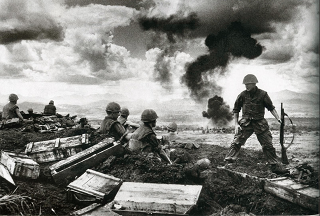
The Battle of Khe Sanh, one of the longest and bloodiest battles of the Vietnam War, began on January 21, 1968, when the North Vietnamese Army launched a massive attack on the U.S. Marine base at Khe Sanh, near the border with Laos. The siege lasted for 77 days, and involved intense artillery, mortar, and rocket fire, as well as ground assaults and air strikes. The U.S. forces, outnumbered and isolated, held their position and inflicted heavy casualties on the enemy, but also suffered many losses and hardships. The battle ended on April 8, 1968, when the U.S. forces withdrew from the base, leaving it to the North Vietnamese.
Related News
Top 10 Highest Buildings in The World
Skyscrapers have long been a symbol of human achievement and architectural prowess. As cities around the world continue to reach for the sky, the race to build the tallest buildings has become increasingly competitive. Here, we take a look at the top 10 tallest buildings in the world, each a marvel of modern engineering and design.
Top 10 Deadliest Plane Crashes in the World
The history of aviation has seen several tragic incidents that resulted in devastating plane crashes. Here, we take a somber look at the top 10 deadliest plane crashes in the world, each of which left an indelible mark on the aviation industry and the lives of those affected.1. Tenerife Airport Disaster (March 27, 1977)0103114104.pngThe Tenerife Airport Disaster remains the deadliest aviation accident in history, claiming the lives of 583 people. It occurred when two Boeing 747s collided on the
The World's Top 10 Cultural Monuments
Ingredients details Main Material Chinese cabbageAppropriate amountPastaAppropriate amountTomatoesSeveralSeasoning Corn Oil8mlSalt1.5 grams ...
Top 10 Big Events During 2o23
In 2023, the world is set to witness a number of significant events across various domains. From technological advancements to political developments, the year is poised to be a pivotal one in shaping the future. Here are the top 10 big events to look out for in 2023:No.1: Global Climate Action Summ


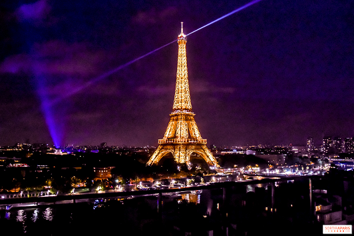

Comment Record:
Reply to comments: